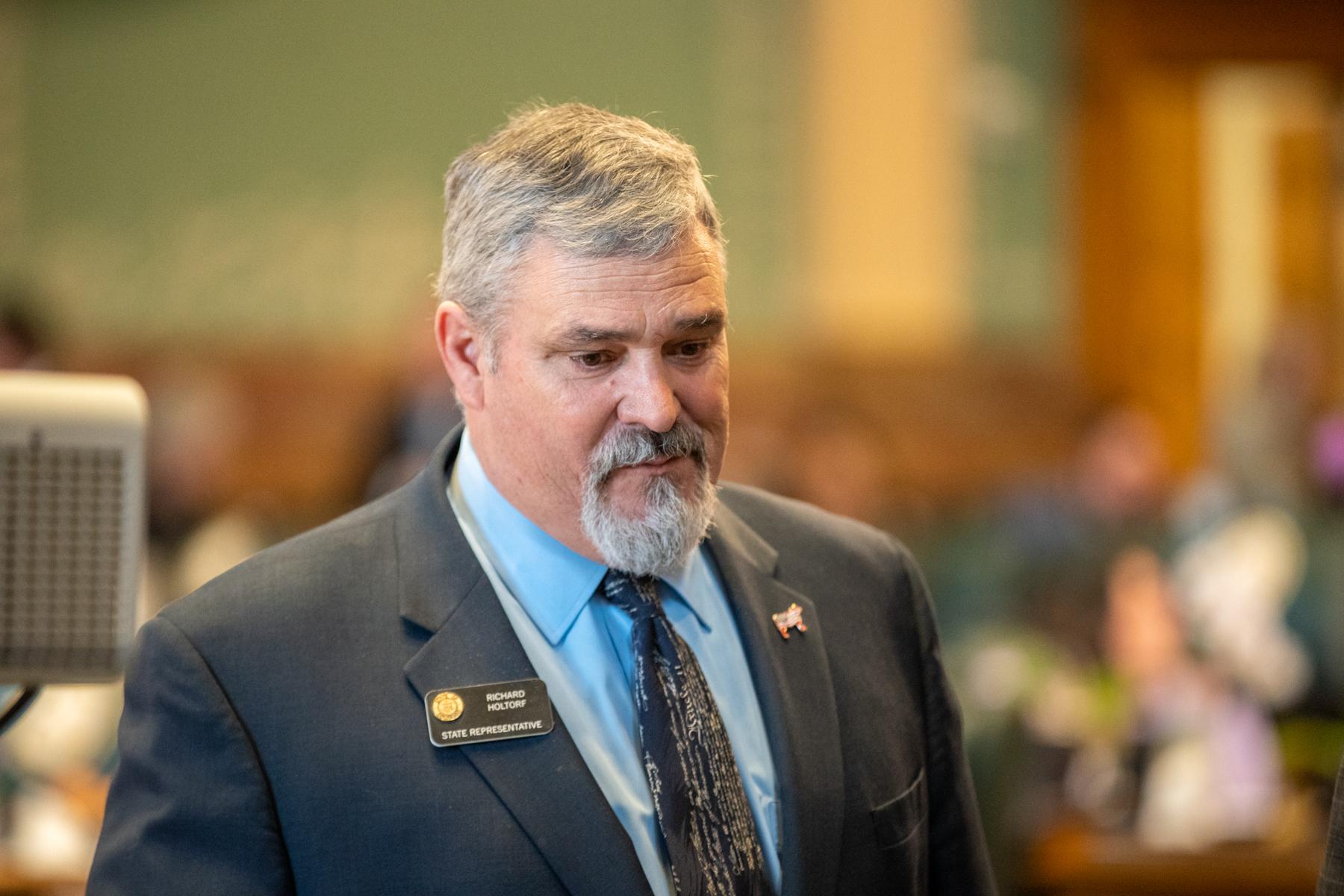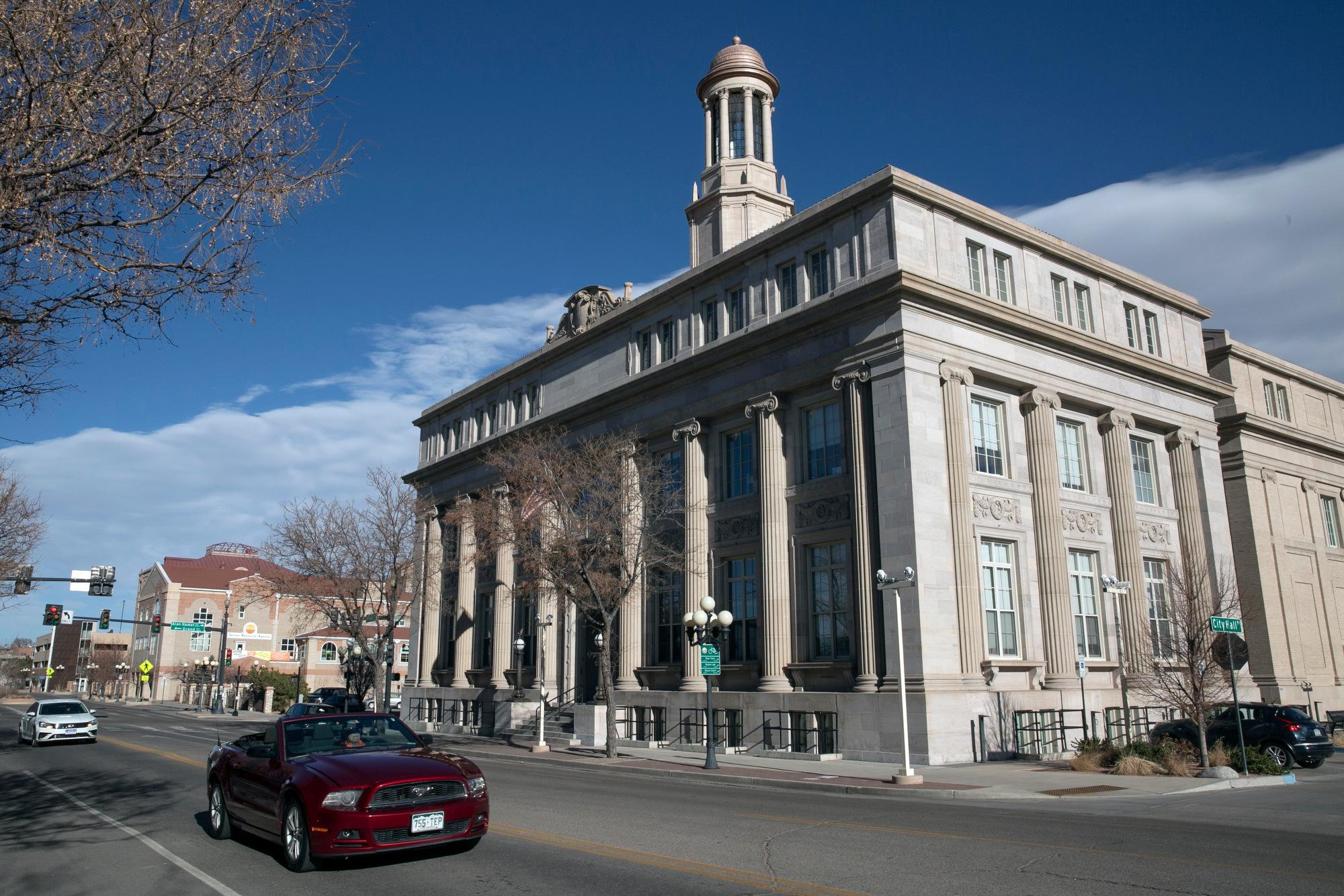
Republican state Rep. Richard Holtorf of Akron said he is considering a primary challenge to Congressman Ken Buck in Colorado’s 4th Congressional District next year.
Holtorf said he has created an exploratory committee and plans to make a decision by early December.
“Because of the positions he takes, there are a lot of people in the district that are frustrated and upset with him and they’ve come to me to ask if I can primary him so they can get that kind of representation in Congress,” Holtorf told CPR News.
Holtorf cited Buck’s recent defense of the treatment of Jan. 6th defendants and his opposition to House Republicans’ impeachment inquiry into President Joe Biden as two examples of a disconnect with the district, as well as other recent comments critical of House GOP leadership.
“Why is he on CNN and MSNBC? I don’t think the message he is explaining represents the sentiment of the district. For any elected official, it’s not about you. It’s about the people in your district,” said Holtorf.
Republican Justin Schreiber, a political newcomer, has also filed paperwork for a run.
Buck’s campaign had no comment on Holtorf’s potential challenge. But last week, the congressman shrugged off the prospect of a primary challenge.
"They came up with a primary challenge last time. It was fine. I'm not at all focused on that," said Buck. "I am fine running the primaries. I'm fine running [in] generals. And if that's what happens, then that's what happens."
In 2022, Elbert County resident Bob Lewis launched a surprise challenge to Buck at the 4th District GOP caucus, gaining enough support to win top-line billing on the primary ballot. Many caucus voters said they were unhappy that Buck refused to join Republican objections to the 2020 election certification.
“I think (Buck) showed his true colors” with the certification vote," said Art Evans of Elbert County who opposed Buck. “He's a nice guy. He did a good job for quite a while. I like the man. He's a good man, but I think he's decided to be more of a politician than a representative of his constituents.”
At the time, Buck referred to the situation as a “family fight.” He went on to win the primary with three-quarters of the vote.
The former Weld County district attorney has been in Congress since 2015. He served as the Colorado Republican state party chair from 2019 to 2021 and is a member of the ultra-conservative House Freedom Caucus.
Colorado’s largely rural 4th Congressional District spans the Eastern Plains and northern Colorado, with Highlands Ranch, Loveland, Castle Rock and Parker as its largest population centers. It’s the state’s reddest district, with Republicans holding a nearly 27-point advantage, based on past election results.
Holtorf, a farmer and rancher, was initially appointed to his seat in the state legislature after his predecessor, Rep. Kimmi Lewis, died of cancer in late 2019. He has since won reelection twice.
Holtorf sits on the House’s Agriculture and Public Health committees. In past sessions, he’s cosponsored a number of bipartisan bills that have become law, including to support rural telecom providers and encourage the expansion of geothermal energy. He’s unsuccessfully introduced bills to audit the state’s election processes and lower the income tax rate.
Holtorf has generated some controversy during his time in office. In 2021, he was roundly criticized for referring to a Latino colleague as “Buckwheat,” a comment many found racist, and that Holtorf subsequently apologized for. And last year, he accidentally dropped a handgun while entering the House chamber ahead of a vote. Lawmakers are allowed to carry concealed weapons at the state capitol because it is considered their place of business under state law.
Holtorf told CPR News that his exploratory committee will conduct polling, examine voter sentiment and determine whether he should run for the congressional seat.
“I’ve run three state races in my short legislative career. A federal race is much different. Will the resources be there and can I raise enough money?” said Holtorf.









